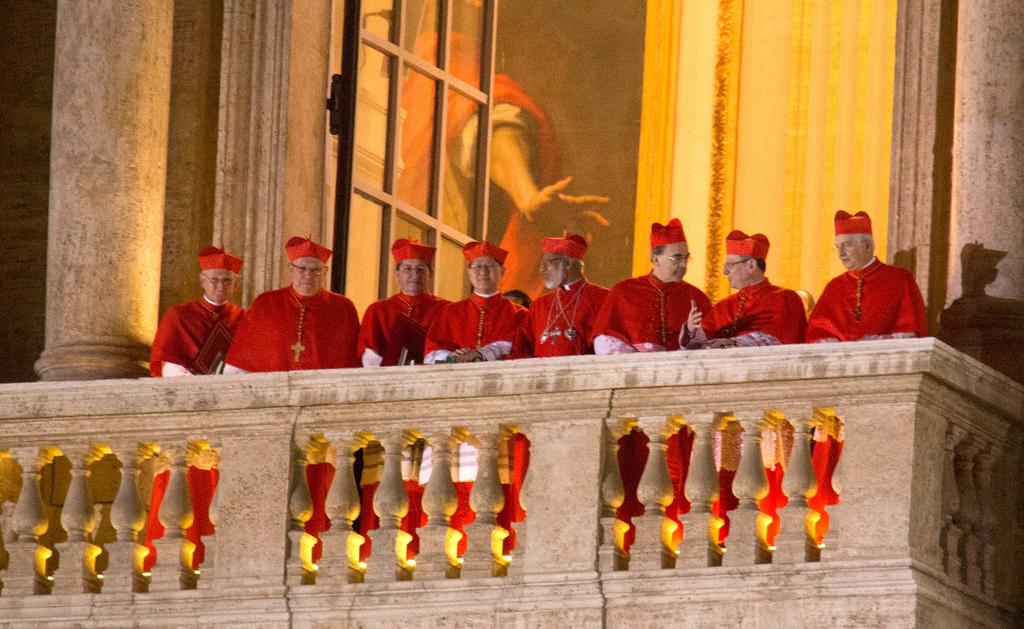On the subject of scapegoating, which I touched on recently: one of the problems with the scapegoat mechanism is that it involves a tacit presumption of purity on the part of the community, once the “guilty” party has been cast out or executed. And this means not only has a grave injustice been done to the scapegoat figure herself; the institutional corruption within the community remains unchanged.
Even though it seems glaringly obvious now that it was a bad idea to shuffle predatory priests around and then let them drift off into comfortable retirement, the institutional corruption has not been dealt with.
I’m writing for a broadly Catholic audience, and can expect that audience to say, at this point: “you mean sin?” Well, yes, in a way. And insofar as I am thinking of that deep rot that some religions dub “sin” I know there’s no fix for it. Utopias generate dystopias; revolutionaries become tyrants. We all know that from both literature and history. But saying “oh, it’s sin, there’s nothing you can do about it,” is both fatalistic and cruel. Cruel because it means that one is invoking some overarching metaphysical excuse to do nothing when there are grave issues of injustice at stake. This is true when it comes to liberation theology, and it’s true about institutional abuse, too.
While scapegoating involves casting all the blame on a sacrificial victim, the pursuit of justice involves thinking critically about one’s own culture, and one’s place in it. This kind of critical thinking can lead to uncomfortable truths. The way we white Americans have to grapple with white privilege is one instance of this. It’s so much harder to come to terms with reality than it is to cast blame on someone else.
In this case many have succumbed to the temptation to blame the gays, often with hysterical flourishes (Stalin sent gay commie priests to infiltrate our seminaries, according to the conspiracy-theory grapevine. Would that reality were so exciting!) – but the more one reads the clearer it should be, even to ideological homophobes, that gay priests are not at the root of the problem. After all, so many assaults have been committed against women and girls. As to the preponderance of assaults on young men and boys, this seems to be an access issue: a predator will prey upon whichever vulnerable person is under his control, and given the exclusively male culture of the priesthood, this means the prey will often be male, too. But priests have also abused women in the confessional, nuns under their spiritual direction, even girls in the hospital. Sickeningly, it seems to be mostly a matter of “who’s available.”
Some have even gone so far as to blame women, the “feminization” of the church, because obviously a “feminized” man (whatever that means) is liable to rape more, unlike those manly men of yore. And after all, there’s nothing feminists support more than aggressive, predatory men. As a friend of mine wrote: “blaming feminists for male perpetrators in a male-controlled institution has to be a special kind of cognitive dissonance.”
At the root of the problem is not any current ideology, nor is it the celibacy of the clergy. In fact, even though I am a proponent of married clergy, in this case – with this level of power at their fingertips – it’s probably a good thing that priests are supposed to remain celibate. Imagine, as a woman in an already patriarchal religion, being married to a man who held not only the usual male privilege, but also all the power of the religion’s mysteries in his hands.
The problem isn’t even men, though I do think it’s time for men to take a step back and evaluate their preconceptions.
The problem is power. Any concentration of power in a single demographic will lead ultimately to injustice and abuse. If women held absolute authority, we’d probably become predatory, too – as recent novels, such as Kingdom of Women, by Rosalie Morales Kearns, have explored.
The argument for an all-male priesthood rests on the fact that Jesus was male, and that the priest, when he says “this is my body,” functions in persona Christi: insofar as he is, in that moment, Christ, his body must be male as Christ’s is / was.
We’ll leave aside here the possible objections to this. Let’s all just accept this for a moment. The priest must be male because he presides over the Eucharistic miracle. Oh, but look! It turns out he presides over the other sacraments, as well. Except for in very extreme cases, the laity – male and female – depend on the priest not only for the Eucharist, but for reconciliation. He holds the keys with which he can free us from our sins. He baptizes our babies. He anoints us when we are sick. At our most vulnerable moments he is the gatekeeper between us and God.
That’s a lot of power right there. Now add to that the fact that only ordained men are accepted into the magisterium (though technically being an ordained man is not a requirement to be a cardinal). Only ordained men can formulate the teachings of the church, interpret scripture, utter episcopal proclamations. Ordained men wield the power of bureaucracy within the church, and hold the money-bags. They decide who goes where, and does what. They run schools and universities. They are spiritual advisers. Their word carries political weight in the public square.
Ordained men. Ordained men.
Only men can have access to these powers.
Vatican City is the last remaining sovereign state in which women have zero suffrage rights. Up until recently, Saudi Arabia was the other.
How different from the early church, where there was radical egalitarianism, and men and women worked together to serve the community. No wonder so many young Roman women flocked to the churches, where they could be sure that they would be regarded, not as breeding partners and chattel, but as valuable and irreplaceable persons, sisters of Christ, brides of Christ. Christianity must have looked gloriously radical, in a civilization dominated by power and pursuit of power, with all the violence and sexual aggression that this entails.
It’s a popular mantra that “rape is not about sex, but about power.” This mantra tells only half the truth. Rape is about sex, too, because the power-hungry who seek to dominate know that sex is more deeply personal, more private, than almost any other human sphere, and that to enter into and manipulate this realm is a power-trip like no other. Power and sex are connected.
Sexual transgression is always going to happen – because, sin! – but one way we could seriously minimize it would be to reform, radically, these areas of life where men – already physically stronger, and biologically consequence-free – are able to back up sexual aggression with religious power. Religion should not have power of this sort, especially a religion that follows Christ, who told us that we must be last if we are to be first, and who rejected the pomp of earthly kingship.
But it’s not enough to say we need to make the primary dynamic one of service. It’s not enough to switch up the rhetoric while leaving the structures the same. Jesus didn’t perch on a throne and call it “service”, nor did he wave a sword and call it “peace.” We must follow the Christian gospel not just in our words, but in our deeds, on a public as well as a personal level.
As long as men and only men – and only ordained men – dominate every single area of the church, the power-dynamic is going to keep on creeping back. And abuses will not only happen, but they will be covered up, the victims blamed, the cycle repeated.
image credit: c1.staticflickr.com/9/8365/8554846079_a85148f4bd_b.jpg













